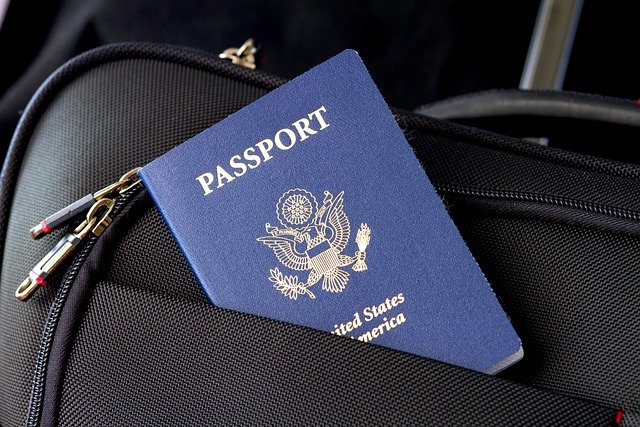
Visa
If you're a Commonwealth citizen and one of your grandparents was born in the United Kingdom, you may be eligible to apply for the UK Ancestry visa. This visa offers the opportunity to work and live in Britain and a legal path to reconnect with your family history, build a new life, and eventually apply for permanent residency.
The process of obtaining a UK Ancestry visa can seem complicated at first, but once you understand what the UK government requires, it becomes manageable. This article discusses everything you need to know, from eligibility to required documents, how to apply, and what the visa allows you to do once granted.
What Is the UK Ancestry Visa?
The UK Ancestry visa is designed specifically for citizens of Commonwealth countries who have a grandparent born in the United Kingdom, including the Channel Islands and the Isle of Man. It's also extended to those with Irish-born grandparents, provided the birth was before 31 March 1922.
This visa gives successful applicants the right to stay in the UK for up to five years. During this period, you are free to take on any type of employment, pursue self-employment, or enrol in educational programmes.
After five years, you can apply for Indefinite Leave to Remain (ILR), and after one year, you can apply for British citizenship, making it an ideal long-term immigration route.
Who Can Apply for a UK Ancestry Visa?
The eligibility rules for the UK Ancestry visa are clearly defined. To apply, you must:
Be at least 17 years old
Hold citizenship from a Commonwealth country or be one of the following:
A British overseas citizen
A British overseas territories citizen
A British national (overseas)
A citizen of Zimbabwe
Prove that one of your grandparents was born in the UK, Channel Islands, or Isle of Man (or in Ireland before April 1922)
Demonstrate your intention to work in the UK
Show that you can support yourself financially without needing public funds
Have a clean immigration record
Adopted individuals may apply if the grandparent connection still holds through legal adoption. However, ancestry claims cannot be made through step-grandparents.
Documents You Will Need to Apply
Applying successfully depends on whether you can demonstrate your British heritage through your documents. You will need to provide clear evidence to prove your eligibility. The following are typically required:
A valid passport or travel document
Full birth certificates for yourself, your parent, and your grandparents (to trace your lineage)
Marriage certificates, if there are any name changes
Evidence of your intent to work, for example, job applications submitted, a CV, or email correspondence with recruiters
Bank statements to show financial stability
Tuberculosis (TB) test results, if you're applying from a country where this is a requirement
Certified translations of any documents not written in English or Welsh
You may also be asked to attend an interview or submit additional paperwork, depending on the UK Home Office's discretion.
How to Apply for the UK Ancestry Visa
Applications for the UK Ancestry visa must be made online before travelling to the UK. Here is how the process typically works:
Start your application on the official UK government website
Pay the visa fee using a debit or credit card
Book and attend a biometric appointment at a UK visa application centre in your home country to provide your fingerprints and photo.
Prepare and submit your supporting documents, either by uploading them during your online application or presenting them at your visa centre
Wait for a decision. You will be notified by email or SMS when your application is processed
If approved, you'll receive a visa vignette (a physical sticker in your passport) that allows you to travel. Upon arriving in the UK, you'll need to collect your Biometric Residence Permit (BRP) from a designated post office.
The Costs and Processing Time of the UK Ancestry Visa
Here's a breakdown of the typical costs:
Visa application fee: £637
Immigration Health Surcharge (IHS): £624 per year (for a five-year stay, this totals £3,120)
Biometric enrolment fee: £19.20 (in some regions)
The UK Ancestry visa usually takes between 3 weeks to process. Some visa centres offer priority services for quicker processing times, though these come at an additional cost.
What You Can Do on a UK Ancestry Visa
Once granted, the Ancestry visa gives you broad flexibility in the UK. You can work in any profession without needing a sponsor, be self-employed or start a business. There is no restriction on the type of work you must do, and you are not required to have a job offer before applying for the visa, only a demonstrated intent to work.
In addition, you can undertake a degree or vocational course and travel freely in and out of the UK during the visa period. Furthermore, you can bring your spouse, civil partner, or children to join you in the UK.
Pathway to Settlement and Citizenship
After living in the UK for five continuous years on the UK Ancestry visa, you may apply for Indefinite Leave to Remain (ILR) or permanent settlement. You will need to prove continuous residence and meet the English language and Life in the UK test requirements.
Once you've held ILR for at least one year, you can then apply for British citizenship, provided you meet the other criteria, such as the good character and reckonable residence requirements.
Bringing Family with You
If you are planning to move to the UK with your family, each dependent must submit a separate application and pay the same visa and health surcharge fees as you did. You will also need to show you can support them without needing government assistance.
Children born in the UK while you are on an Ancestry visa do not automatically become British citizens, but you may apply to register them once you gain ILR.
Conclusion
For foreign nationals with British roots, the UK ancestry visa is a legal way to settle in the United Kingdom. It offers a pathway to long-term residency and eventually British citizenship.
If you intend to apply for the Ancestry visa, it is essential to determine your eligibility before submitting an application. Consider discussing your situation with a UK immigration lawyer who can guide you through the application process and help improve your chances of having a successful outcome.




